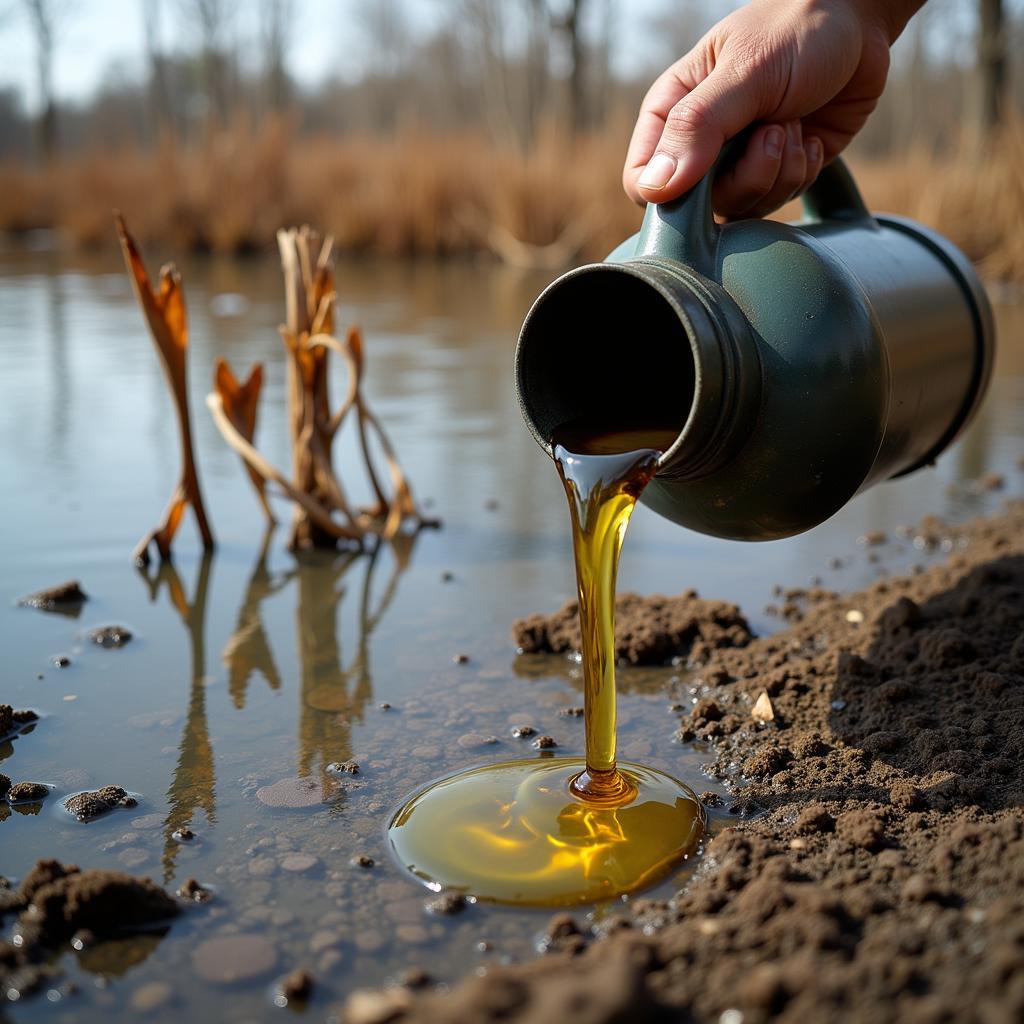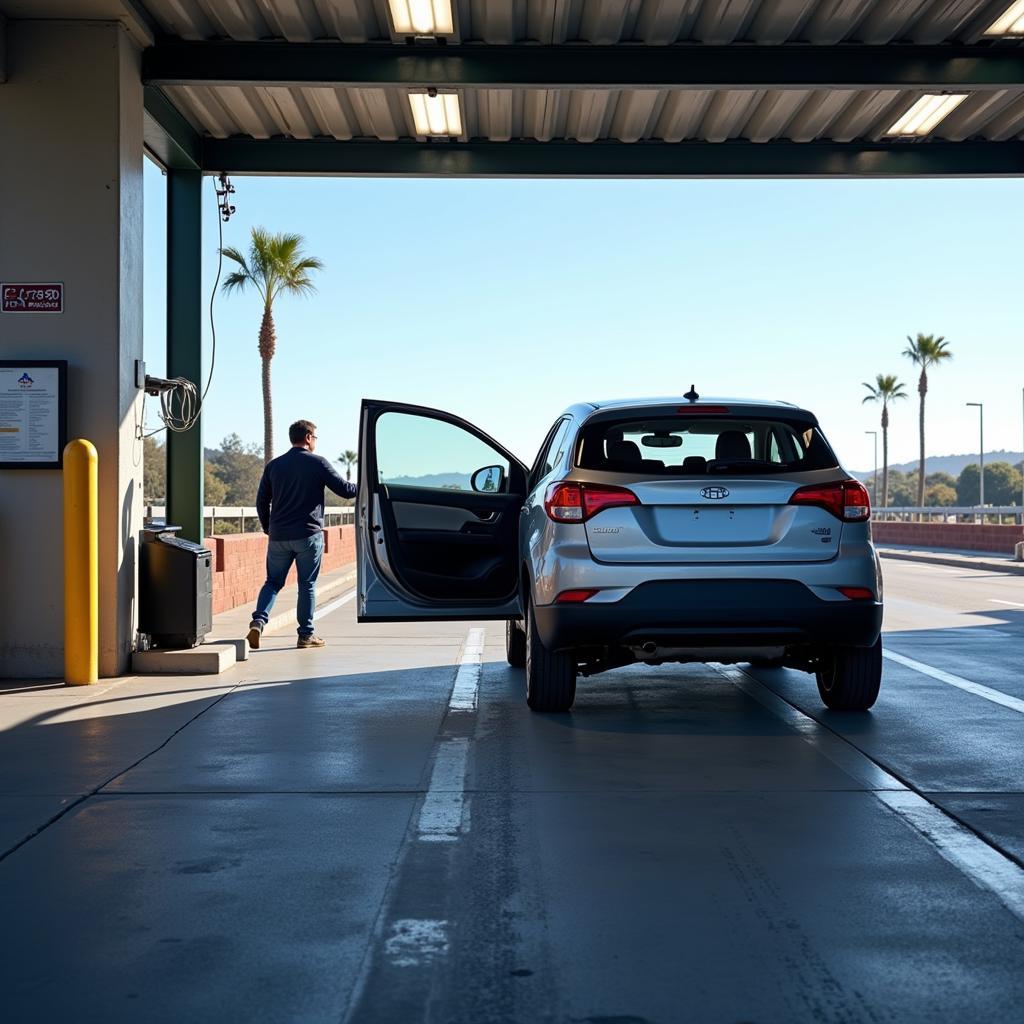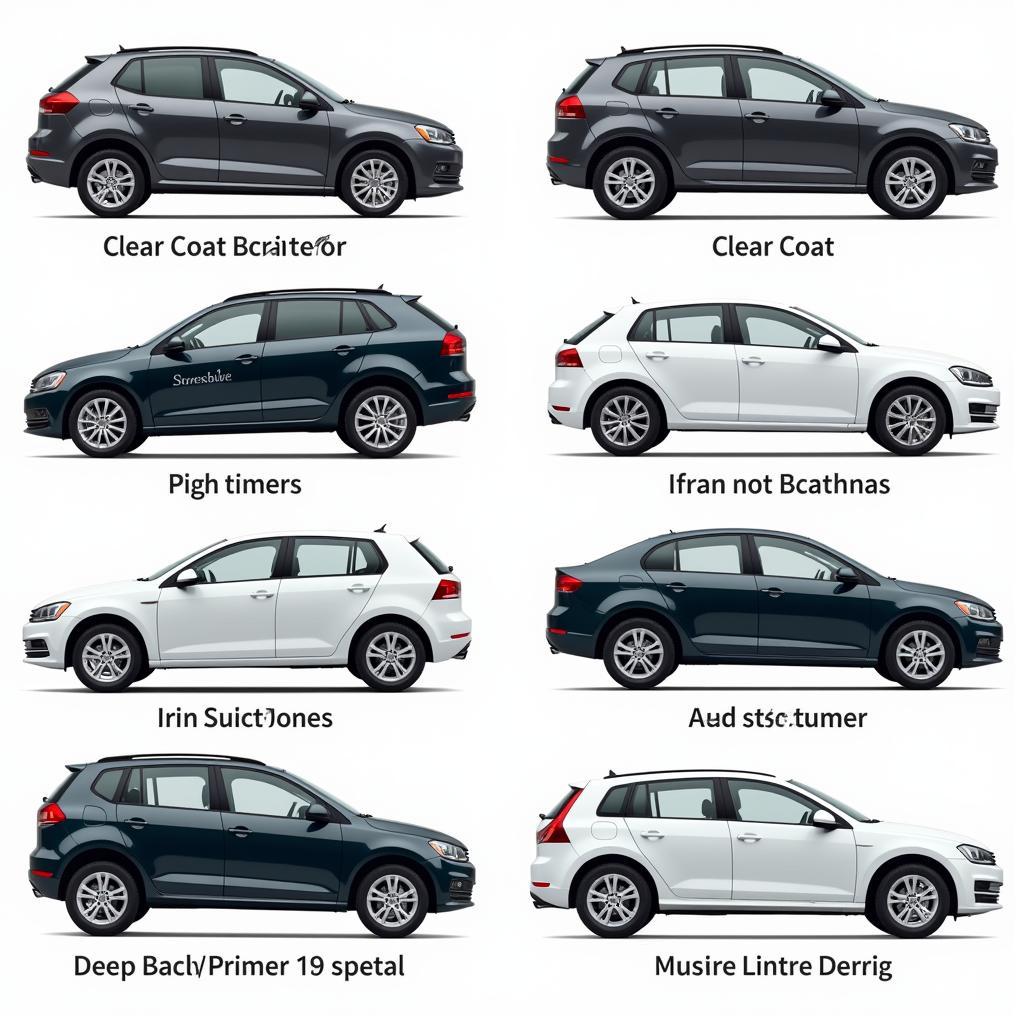Navigating the world of car maintenance in California can feel like navigating a minefield of regulations. While the state is known for its strict environmental laws, you might be surprised to learn that some seemingly innocuous car maintenance practices could land you in hot water.
This guide delves into the specifics of “Car Maintenance In California Illegal,” empowering you to keep your vehicle in tip-top shape while staying on the right side of the law. We’ll cover common pitfalls, clarify legal grey areas, and equip you with the knowledge to make informed decisions about your car care.
Common Car Maintenance Practices That Could Get You Fined in California
Let’s start by debunking a common misconception. The phrase “car maintenance in California illegal” is a bit of a misnomer. It’s not car maintenance itself that’s illegal, but rather certain practices that can violate environmental regulations or safety standards. Here are some prime examples:
1. Improper Disposal of Motor Oil
The Issue: Used motor oil is considered hazardous waste in California due to its potential to contaminate soil and water sources.
What’s Illegal:
- Dumping used motor oil down storm drains, sewers, or directly onto the ground.
- Disposing of used oil in your regular trash.
How to Stay Legal: Always take your used motor oil to a certified collection center. Many auto parts stores and service stations participate in used oil recycling programs.
 Consequences of Improper Oil Disposal
Consequences of Improper Oil Disposal
2. Tampering with Emissions Control Systems
The Issue: California has some of the strictest emissions standards in the nation to combat smog and improve air quality.
What’s Illegal:
- Removing or disabling any part of your vehicle’s emissions control system, including the catalytic converter, oxygen sensors, or evaporative emissions system.
- Installing aftermarket parts that bypass or defeat emissions controls.
How to Stay Legal: Maintain your vehicle’s emissions control system as recommended by the manufacturer. If you experience any issues, have them repaired by a certified mechanic who uses approved parts.
3. Working on Your Car in Public Spaces
The Issue: While California encourages DIY car care, there are restrictions on where you can work on your vehicle to prevent potential hazards and environmental contamination.
What’s Illegal (Generally):
- Conducting major car repairs on public streets, sidewalks, or parks.
- Leaving your car on jacks or stands on a public street for extended periods.
- Discharging fluids (oil, coolant, etc.) onto the ground in public spaces.
How to Stay Legal:
- Perform minor repairs in your garage or driveway, ensuring proper containment of fluids.
- For major repairs, utilize a designated DIY auto shop or consult a professional mechanic.
Understanding California’s Smog Check Program
California’s Smog Check program is a key component of its efforts to maintain air quality. Here’s a breakdown:
- Who Needs a Smog Check: Most vehicles in California require a smog check every two years.
- Exemptions: Newer cars, electric vehicles, and certain low-emission vehicles might be exempt. Check with the California Bureau of Automotive Repair (BAR) for specifics.
- Failing a Smog Check: If your car fails, you’ll need to have the necessary repairs made and get it retested.
- Certified Smog Check Stations: Only take your car to a BAR-certified smog check station for testing and repairs.
“Ignoring your car’s emissions system is like ignoring a flashing warning light on your dashboard,” says Jake Peterson, a certified Master Automotive Technician in Los Angeles. “It might seem fine in the short term, but it could lead to more costly problems down the road, not to mention legal consequences.”
Tips for Legal and Responsible Car Maintenance in California
- Stay Informed: Keep up-to-date on California’s emissions standards and car maintenance regulations. The BAR website is a valuable resource.
- Choose Wisely: Opt for a reputable mechanic or DIY auto shop that complies with all environmental regulations.
- Ask Questions: Don’t hesitate to ask your mechanic about the parts they use and their disposal practices.
- Dispose Properly: Learn about proper disposal methods for all automotive fluids and parts.
- Maintain Records: Keep detailed records of your car maintenance and repairs, including receipts and invoices.
 California Emissions Testing at Certified Station
California Emissions Testing at Certified Station
Conclusion
“Car maintenance in California illegal” might seem like a daunting concept, but by understanding the key regulations and adopting responsible practices, you can ensure your car is both roadworthy and environmentally compliant.
Remember, adhering to these guidelines not only keeps you on the right side of the law but also contributes to a cleaner, healthier California for everyone.
Need further assistance with car maintenance or have questions about California’s regulations? Contact AutoTipPro at +1 (641) 206-8880 or visit our office at 500 N St Mary’s St, San Antonio, TX 78205, United States. We’re here to help!





Leave a Reply